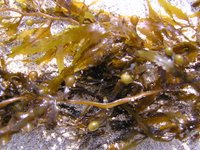
'Teach your Child How to Think' , by Edward de Bono, is intended to give parents and teachers some guidelines on how to develop children's thinking skills. I have read a few chapters. To my disappointment, the first two chapters boast how influential and authoritative the author is in the field of cognitative science and psychology. When I moved on to chapter Three, what I discovered was the concept of 'Six Thinking Hats', an obsolete concept proposed by the author many years ago. I expect something new and inspiring in this book but it fails to meet my expectation.
"Six Thinking Hats' is a mental habit of approaching a problem from six perspectives represented by six hats of different colours. White-hat thinking is to do with information. Red-hat thinking is to do with feelings. The Yellow hat focuses on benefits. The Black hat is used for judgement and assessment. The Green hat is for action and creativity and the Blue hat is for the control of the thinking process itself. One advantage of the 'Six Thinking Hats' is that it can force you to deliberately think about an issue from multiple facets. However, as I practice the 'Six Thinking Hats' I find it quite difficult to partition my thought into six categories. The deliberate use of 'Six-thinking hats' may sometimes complicate the problem. Maybe it takes time to devleop this habit so eventually this particular way of thinking may seamlessly merge your routine mental work.
The author also suggests the sequence use of 'Six Thinking Hats' in different scenarios. The following paragraphs on sequential use are quoted from the book.
Scenario 1
Seeking an Idea:
The sequence of hat colours might be:
White: To gather available information.
Green: For further exploration and to generate alternatives.
Yellow: To assess the benefits and feasibility of each alternatives.
Black: To assess the weaknesses and dangers of each alternative.
Green: To develop further the most promising alternatives and to make a choice.
Blue: To summarize and assess what has been achieved so far.
Black: To make the final judgement on the chosen alternative.
Red: To find out the feelings on the outcome.
Scenario 2
Reacting to a Presented Idea:
Here the sequence is different because the idea is known and usually, the background infromation is also known.
Red: To find out the existing feelings about the idea.
Yellow: To make an effort to find the benefits in the idea.
Black: To point out weaknesses, problems and dangers in the idea.
Green: To see if the idea can be modified to strengthen the yellow-hat benefits and to overcome the black-hat problems.
Green: Development of the final suggestion.
Black: Judgement of the final suggestion.
Red: To find out the feelings on the outcome.
Do you find the above sequences useful? You can try these in solving problems and see whether they work or not.
This book is available at local libraries and the call number is 153.4 DEB








